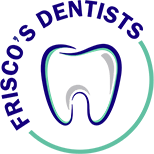Why Do My Teeth Hurt?
If you’ve experienced a toothache, you know that it can come on fast and last for a long time. Your first thought may be to take an over the counter pain reliever and hope it goes away, but in the case of most tooth pains, not receiving treatment can make the situation worse.
Common Reasons for Tooth Pain
Our mouths are filled with hundreds of living organisms that live on our teeth, tongues, gums, and other crevices. While some bacteria can be useful for our teeth, different types are harmful and can cause a variety of concerns for your dental health. Read on to learn about some common reasons behind your tooth pain.
Abscessed Tooth
If you have a particularly sensitive tooth, and it gives you a great deal of pain, you may have an abscessed tooth. An abscess is a pocket of pus that forms due to a bacterial infection — here are three main types of sores:
Periapical abscesses: are located at the tip of your tooth’s root.
Periodontal abscesses: are located on the gums next to the root of your tooth, and can potentially spread to your tissue and bone.
Gingival abscesses: are located on your gums.
The main symptoms of an abscessed tooth include throbbing pain near your tooth that radiates to your ear, jaw, or neck. It could potentially feel or sound like your ear or jaw is popping. Additionally, you may feel pain when you lie down or may experience a foul taste in your mouth.
It’s also important to note, if you leave your abscessed tooth untreated, it can potentially be life-threatening.
Cracks and Fractures
Due to normal wear and tear on our teeth, cracks and fractures can happen. It’s common for cracks to primarily occur when biting down on a hard object or when eating foods such as ice or popcorn. Fractures in your teeth are quite noticeable, and you may be able to feel them with your tongue. If you believe your tooth is cracked, you should see your dentist immediately to have it fixed.
Wisdom Teeth
Your wisdom teeth are the last teeth to grow in the very back of your mouth. Since most patients experience their wisdom teeth growing in later in life, there isn’t enough room in their jaws for the new teeth. If your wisdom teeth become impacted, this means that their natural movement is restricted, causing swelling, soreness, and pain.
Your dentist will typically locate your wisdom teeth during your regular cleanings and will advise you to remove them before they start to pop through your gums. The good news is, recovering from wisdom teeth removal is relatively quick!
Gum Disease
If your smile is red and swollen, your gums are most likely the cause of your dental pain. Swollen gums can be a sign of a variety of hygiene and health issues, but one of the more severe consequences is gum disease.
Otherwise known as gingivitis or periodontitis, gum disease is an infection of the gum tissue around your teeth. This tissue helps to secure your teeth, and left untreated can lead to tooth loss and degeneration of your gums. When bacteria builds up in your gums, they can begin to recede from your teeth, causing gaps and pockets. In turn, these pockets will fill with the harmful bacteria inside your mouth and leave your tooth roots exposed, which is extremely painful.
How to Treat Dental Pain
If your toothache is intermittient and comes and goes, a dental exam may not be an immediate concern. However, you should still schedule an appointment for the near future.
Your dentist is the best person to identify the exact cause of your pain. Typically, they will examine your teeth and may take some x-rays to check for abscesses, cavities, and other problems that can’t be seen by the plain eye.
Restorative Services
After your dentist has located the cause of your dental pain, they may place you on a treatment plan to alleviate the problem. This may mean having an additional restorative procedure done, including:
Root canals are typically done when your teeth have decayed or sustained a great deal of damage.
Dental fillings are tooth-colored composite fillings to fix a tooth after a cavity.
Dental crowns are another way of resolving dental decay when dental fillings cannot fix the problem.
Dentures area functional fix usually used if you have lost any teeth.
Wisdom tooth extractions are a standard procedure that can help alleviate wisdom tooth pain.
Periodontal treatments can thoroughly clean the pockets around your teeth and in your gums to reduce swelling and prevent bone damage.
Don’t Ignore Your Dental Pain, Contact RAN Dental Today!
Even those who have the best at-home dental care routine can experience a dental emergency. The best way to treat your tooth pain is to make an appointment with your dentist immediately.
We know that many patients fear coming to the dentist. However, avoiding treating your tooth pain will only result in a worsening of your condition. When you choose Robert A. Neal, DDS Family Dentistry, we treat you like family. We’ll help ease your tensions and make your next appointment as stress-free as possible. Contact us today to set up an appointment and alleviate your pain.


